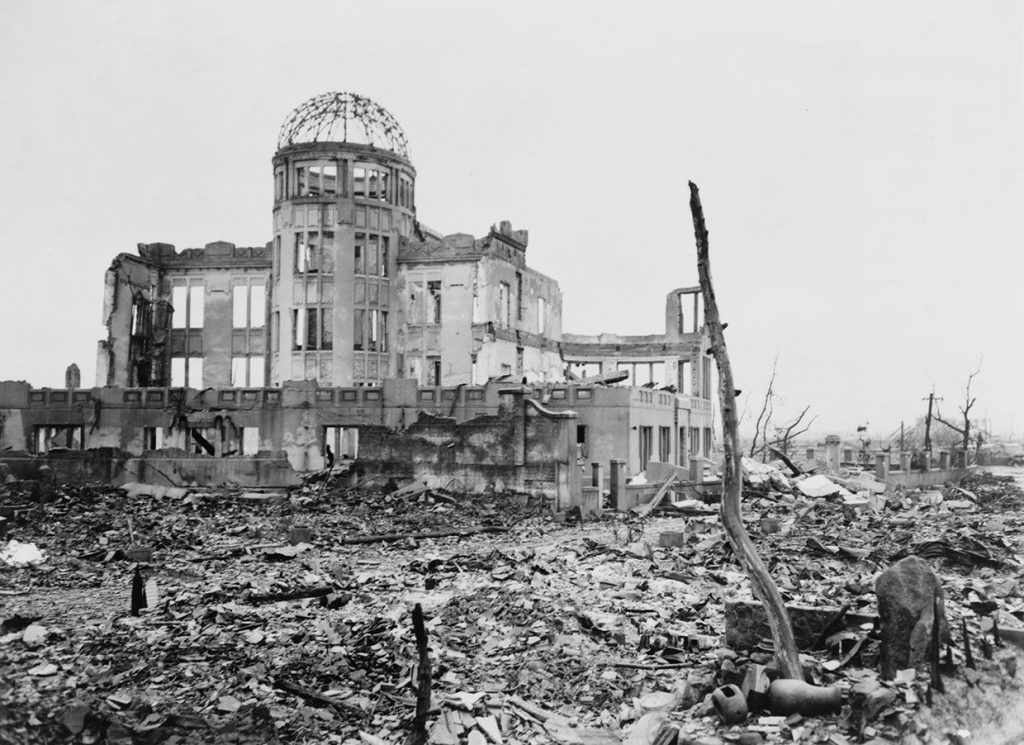It’s an accident of history that the present debate on the six-nation nuclear agreement with Iran overlaps the 70th anniversary of the first uses of atomic weapons in war.
Religious believers rightly consider “accidents” like this to be just as much elements of God’s providential plan as anything else (they also concede that it’s foolish to claim to read God’s plan with certainty in the flux of contemporary events).
Granting the truth of all that, however, the coincidence of the anniversary and the Iran debate unquestionably sheds a certain light on the latter. Consider.
On Aug. 6, 1945 an American bomber dropped an atomic bomb on Hiroshima. Three days later it was Nagasaki’s turn. Estimates of how many died in the two cities vary, with 200,000 a conservative figure. Most were noncombatants. Japan quickly surrendered.
American reaction to the bombings was almost universally favorable. Ten years old and soaked in wartime propaganda movies and comics, I reacted as the adults around me did: “The Japs” — I’d learned to call them that — “started this, and they had it coming.”
Few Catholics raised objections. Two who did were Dorothy Day, co-founder of the pacifist Catholic Worker movement, and Jesuit Father John Ford, preeminent American Catholic moral theologian of that day, who two decades later was excoriated by liberal Catholics for supporting the Church’s teaching against contraception as a member of the papal birth control commission.
To be sure, none of this settles the pros and cons of the deal with Iran. As was to be expected, the Vatican and the U.S. Conference of Catholic Bishops both praised the agreement, with USCCB urging Congress to approve it. A statement by the Holy See called the deal “an important outcome” of the protracted negotiations, while acknowledging the need for “continued efforts and commitment on the part of all involved … in order for it to bear fruit.”
As that suggests, positive assessments of the agreement unavoidably are based on the premise that Iran will observe its terms. That’s indispensable if it is truly to serve the interests of stability and peace.
At the same time, the views of those who have good grounds — as distinguished from knee-jerk negativism — for thinking Iran will cheat must be taken seriously.
In the end, then, it comes down to this.
If all goes well — an admittedly large “if” — the agreement will put off for 10 or 15 years the possibility of Iran’s acquiring nuclear weapons.
But will all go well? Will Iran refrain from cheating? Even supposing it does, what happens after 10 or 15 years? Who can pretend to know? And what happens now if there is no agreement?
Those who say they know the answers are talking through their hats.
So accepting the agreement would be a gamble. As would rejecting it.
Seventy years ago, Harry Truman gambled, betting on the proposition that flattening two Japanese cities, killing several hundred thousand women, children, and elderly people and inaugurating the era of nuclear warfare would end World War II faster and save more lives than, say, incinerating an uninhabited Pacific atoll in the presence of observers from the Japanese government and military would have done.
Agree or disagree, one must credit Truman with sincerity in betting as he did.
It’s human to want only sure things, but sometimes there are none. The nuclear deal with Iran is one of those times. I can understand why others would bet differently, but if I were betting I’d put my money on the agreement, then hope for the best.

